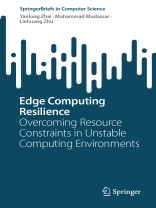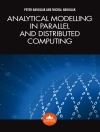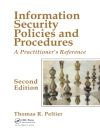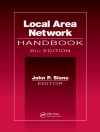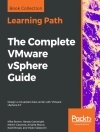Edge computing has emerged as a powerful technology for efficiently executing tasks by pushing cloud computing capabilities to the edge of the network. This approach significantly improves the quality of services of Io T applications and greatly enhances the performance of resource-constraint edge devices. However, with the explosive growth in users and data generation, low-computing-capability devices often struggle to meet computation demands in time, posing a significant challenge to the success of edge computing. These challenges include latency requirements, low computational power, system heterogeneity, energy constraints and privacy issues. To address these challenges, it is critical to design robust edge computing systems.
This book provides a systematic and comprehensive analysis of edge computing challenges and presents resilient designs and frameworks suitable for real-time edge computing applications. The discussion primarily focuses on overcoming resource constraints in unstable edge computing environments, which is achieved through various concepts and technologies, such as fault handling, optimization and computation offloading.
The book is significant to researchers in the field of edge computing, especially in the context of the resource-constrained paradigm, Io T application execution in the edge and fog computing. The book features innovative models and frameworks for processing time-critical, energy-aware and privacy-aware applications. By reading this book, researchers and professionals will gain a deeper understanding of different technologies and frameworks for edge computing and develop an appreciation for edge computing resilience. This resilience makes the edge system robust against frequent system failures for real-time Io T applications. The book provides a foundation for future research in this field and is an essential read for those seeking to advance their knowledge and expertise in edge computing.
Jadual kandungan
Chapter 1. Edge Computing.- Chapter 2. Scalability and Fault Tolerance for Real-Time Edge Applications.- Chapter 3. Resource-constrained Offloading in Edge Computing.- Chapter 4. Privacy Preserving Offloading.- Chapter 5. SDN-Based and Energy Aware Offloading.- Chapter 6. Optimization for Edge.- Chapter 7. Future Work.
Mengenai Pengarang
Yanlong Zhai received the B.Eng. degree and Ph.D. degree in computer science from Beijing Institute of Technology, Beijing, China, in 2004 and 2010. He is an associate professor in the School of Cyberspace Science and Technology, Beijing Institute of Technology. He was a visiting scholar in the Department of Electrical Engineering and Computer Science, University of California, Irvine. His research interests include cloud computing, big data and edge computing.
Muhammad Mudassar received the master’s degree from the School of Electrical Engineering and Computer Science, SEECS-NUST, Islamabad, Pakistan, in 2011, and the Ph.D. degree in computer science from Beijing Institute of Technology, Beijing, China, in 2020. He is working as an assistant professor with the Department of Computer Science, COMSATS University Islamabad (Vehari Campus), Vehari, Pakistan. His research interests include distributed computing, big data processing frameworks, fog computing, fault tolerance and edge computing.
Liehuang Zhu received the B.Eng. and Master Degrees in computer application from Wuhan University, Wuhan, Hubei, China, in 1998 and 2001, respectively. He received the Ph.D. degree in computer application from Beijing Institute of Technology, Beijing, China, in 2004. He is currently a professor in the School of Cyberspace Science and Technology, Beijing Institute of Technology, Beijing, China. He is selected into the Program for New Century Excellent Talents in University from Ministry of Education, China. His research interests include internet of things, cloud computing security, internet and mobile security.
